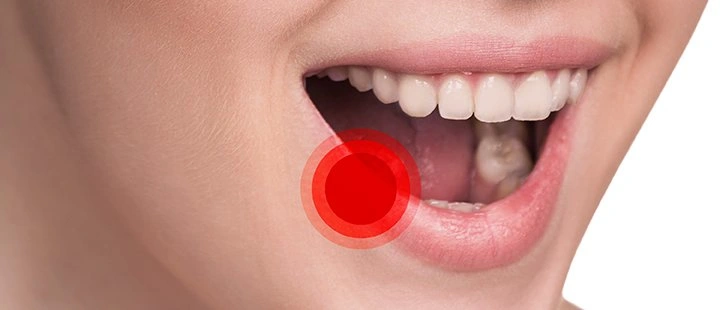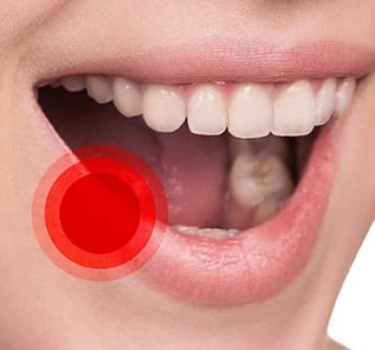Cold Sores
Cold sores are a painful infection caused by the herpes simplex virus. Also known as fever blisters, these blisters can appear on any part of the body but are commonly found on the outside of the mouth and lips. After forming, blisters break to form a contagious sore that lasts between 7 to 10 days before crusting over.
Cold sores are very common, and in the most part not serious. However, the infection can be life-threatening for anyone who has AIDS, can cause blindness if it spreads to the eyes, and meningitis if it spreads to the brain.
What causes cold sores?
The herpes simplex virus type 1, which usually causes cold sores, is spread through forms of contact such as kissing or sharing utensils with an infected person. It can also be transmitted through oral sex.
Once you have been exposed to the herpes simplex virus, it will lie dormant until it is triggered. The virus can be triggered in a number of ways. Cold sore causes include:
- Certain foods
- Cold weather or excessive sunlight
- Allergies
- Stress and fatigue
- A weakened immune system
Commonly, a cold sore outbreak will take 2 to 4 weeks to heal completely, and it is contagious throughout this time.
Patients suffering their first cold sore outbreak may also experience the following cold sore symptoms:
- Sore throat
- Headache
- Muscle ache
- Fever
Cold sore treatment
Although there is no cure for the herpes simplex virus, cold sore medicine such as antiviral medications can help to heal the cold sore more quickly and reduce their frequency.
If your cold sore does not clear up within two weeks or if your symptoms are severe, you should make an appointment to see your doctor who will be able to recommend a cold sore treatment.
How to prevent cold sores
It can be difficult to prevent cold sores. However, if you know what your cold sore triggers are, try to avoid them as best you can. For example, if the sun is a cold sore trigger for you it may be beneficial to pay particular attention to the affected area when applying sunscreen. In extreme cases, a daily prescription of antiviral medication might be recommended by your doctor.
SHARE



